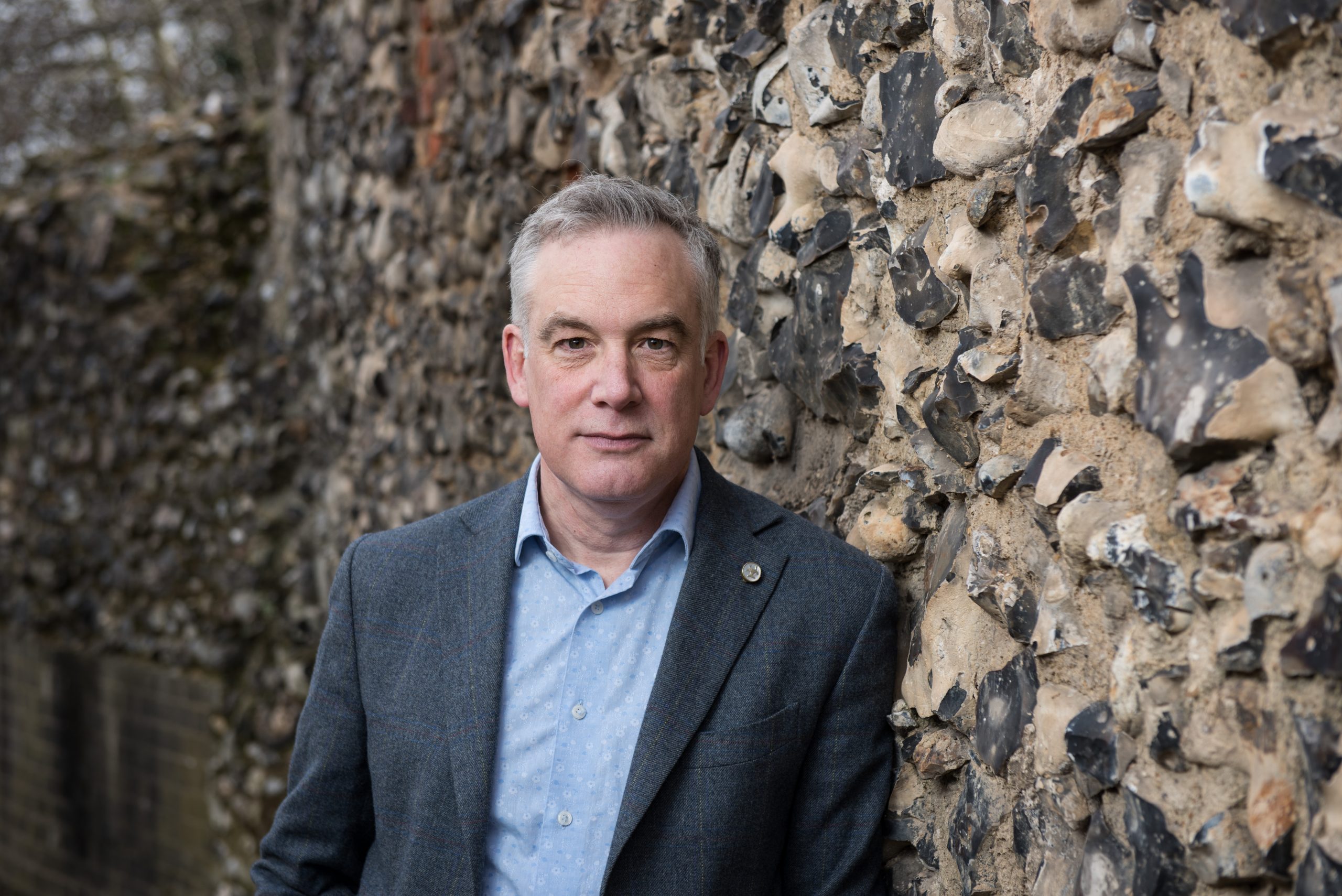
13 May A Sense of Direction – Daniel Brine
Incredibly, the Norfolk and Norwich Festival is a quarter of a millennium old this year. The multi-arts event is celebrating its 250th anniversary in style, with seventeen days of music, performance, circus, literature, outdoor art, and outreach programmes, spread out across Norwich and the county surrounding it.
“It started in 1772, originally as a sermon at the cathedral intended to raise money for the Norfolk and Norwich Hospital,” explains Daniel Brine, the festival’s current artistic director and chief executive. “Within a very short space of time, the sermons became a triennial series of concerts, and that is how the festival has existed for most of its history. It became an annual arts festival in the late 1980s.”
“It is really interesting to look back at the history of the festival, and at the role it has played over that time,” continues Brine. “A lot of festivals – Edinburgh and Adelaide included – came out of a sense of nation-building after the end of the Second World War, but the Norfolk and Norwich Festival’s genesis is different.”
“The festival started as a fundraiser for the hospital, and it stayed that way for a long, long time,” he explains. “The idea of a community using culture to achieve social aims – of a city coming together through art to raise money for what they needed – was at the centre of the festival when it started, and it has stayed there.”
***
Brine has spent much of his early life in festival cities. He was born in Adelaide, lived in Edinburgh for a time as a child, and remembers how both cities “came alive” during their respective festivals. “Perhaps I’m post-rationalising, but I look back at my life, and festivals have always been there,” he says. “I enjoy the festival experience. I feel comfortable around them. I understand their importance.”
Brine studied architecture at the University of Sydney then arts administration at the University of New South Wales, and eventually arrived full-time in the UK – via New York – in 1997. Roles with Arts Council England and the Live Art Development Agency followed, before he took up the artistic and executive directorship of Cambridge Junction in 2012, leaving in 2017 for his current role.
“People often expect me to come from a directing background,” Brine says. “They expect me to have been a theatre director or an opera director or something, but I’ve never done that and I don’t think you need to have done that to direct a multi-arts festival like this. I actually think it helps to have someone who can play with the boundaries between artforms, and who understands the importance of audience.”
“My job is almost like that of an editor,” Brine describes. “Imagine you are putting an anthology together. There are some things you put in that will give a real, distinct flavour to it. There are some things you put in because you know people will like them. My job is to balance those options and decide what to prioritise, and to consult our funders, our audiences, and the venues that we work with in doing so.”
***
The fact that Norfolk and Norwich Festival has been going strong for two-and-a-half centuries does not mean it will necessarily survive for two-and-a-half more without careful stewardship. Times are tough, says Brine, and shepherding a festival from one year to the next is increasingly tricky – something easily evidenced by the fact that there are very few annual, city-based, multi-arts festivals left.
“Most festivals nowadays are either artform-based, or have been forced to run every two years instead of annually to survive,” Brine explains. “The idea of a city holding a festival like this is increasingly rare. We have managed to survive and thrive, though.”
How has Norfolk and Norwich Festival managed to survive and thrive? Well, among other things, it is a National Portfolio Organisation with Arts Council England, it receives substantial support from Norwich City Council, it has a healthy sponsorship structure with local businesses, and it manages – outside of the Covid-19 pandemic, at least – to sell a lot of tickets every year through savvy programming. Such success, says Brine, does not always get the attention it deserves, though.
“I think we are officially the fourth largest festival in the UK, but it doesn’t always feel like it,” he explains. “I had a choice when I arrived, though, between increasing the festival’s national profile or embedding it in the community as much as possible. I chose the latter. The downside is that we maybe don’t receive the recognition that we should. The upside, though, is that we are known and loved in Norwich and Norfolk, and that is the important thing.”
—
Daniel Brine was talking to Fergus Morgan for SDUK.
